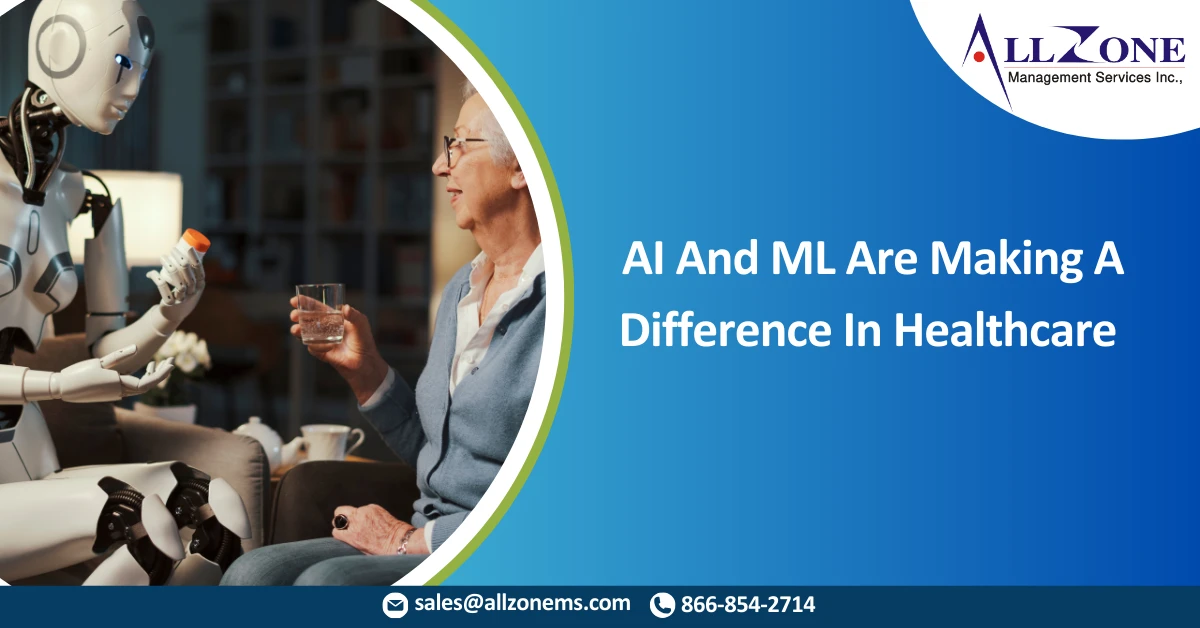Discussions about artificial intelligence (AI) and machine learning (ML) in healthcare often focus on clinical applications—assisting doctors with diagnoses or personalizing cancer treatments. However, healthcare is a vast industry with equally complex financial and administrative components. AI and ML are revolutionizing these behind-the-scenes processes, improving provider efficiency, reducing costs, and enhancing the patient experience.
Enhancing Claim Denial Management:
Minimizing claim denials and processing rejections efficiently is crucial for healthcare providers. However, the complexity of medical coding and billing makes this a significant challenge in revenue cycle management (RCM). AI and ML can help by predicting denials with high accuracy before claims are submitted, reducing the need for costly appeals and rework.
These technologies analyze patterns to determine the likelihood of claim denials, helping billing teams focus on the most impactful areas to optimize reimbursement. Additionally, AI can assess past claim overturn rates, prioritizing claims that have a higher probability of successful appeal, ensuring resources are allocated effectively.
Advanced platforms like AI medical coding platform leverage machine learning to automate claim validation, ensuring accuracy before submission. By identifying coding discrepancies and payer-specific requirements, it helps minimize rejections and maximizes reimbursements for healthcare providers.
Streamlining Claim Settlement:
Claim turnaround times can significantly impact a hospital’s financial health. Without clear insights, RCM teams may waste valuable time guessing when to follow up on payments.
AI provides data-driven insights into payer behaviors, identifying typical settlement timelines and flagging unusually delayed claims. This allows organizations to intervene at the right moment, making claim follow-ups more efficient without unnecessary manual effort. AI doesn’t replace RCM jobs—it enhances them by pinpointing when human intervention is necessary.
AI-powered systems can also prioritize claims that require escalation, allowing billing teams to focus their efforts where they matter most. With predictive analytics, organizations can forecast revenue cycles more accurately, ensuring financial stability.
Improving Data Accuracy with Automation:
Medical billing errors are alarmingly common, with studies indicating that up to 75% of bills contain inaccuracies. These errors, ranging from typos to misentered diagnosis codes, contribute to significant administrative waste—estimated to reach $500 billion annually.
AI-powered tools can detect and prevent data entry mistakes by continuously monitoring records for consistency and accuracy. Unlike humans, AI retains a perfect memory, ensuring that information remains precise as it moves through different systems. By reducing manual errors, AI enhances billing accuracy and reduces costly rework.
The AI medical coding platform improves data integrity by leveraging natural language processing (NLP) to interpret physician documentation and suggest the most accurate codes. This not only accelerates the coding process but also ensures compliance with evolving coding regulations, reducing audit risks.
Overcoming Challenges in AI Adoption:
Like any emerging technology, AI and ML adoption in healthcare face challenges. Many decision-makers lack awareness of available tools, making it essential for industry leaders to stay informed and advocate for AI-driven improvements.
Misconceptions about AI replacing human jobs can also create resistance. In reality, AI augments human expertise by handling repetitive, time-consuming tasks, freeing professionals to focus on complex cases and strategic decision-making. AI enhances efficiency, but human oversight remains essential.
Implementing AI effectively requires a strategic approach. Organizations should integrate AI within broader digital transformation initiatives, identifying processes that benefit most from automation. Additionally, setting clear goals and tracking performance metrics ensures AI solutions continue to improve over time.
A More Efficient Future for Healthcare:
AI and ML are already reshaping healthcare administration, bringing predictability and efficiency to revenue management. As these technologies continue to evolve, they will drive hospital revenue growth, improve financial transparency, and enhance the overall patient experience. With better financial control and operational efficiency, healthcare providers can focus more on what truly matters—delivering quality patient care.
By incorporating AI medical coding platform, healthcare organizations can experience streamlined billing, reduced claim denials, and increased operational efficiency. The future of AI-driven healthcare administration is not just about automation—it’s about transforming the way providers manage resources, optimize workflows, and enhance patient outcomes.

